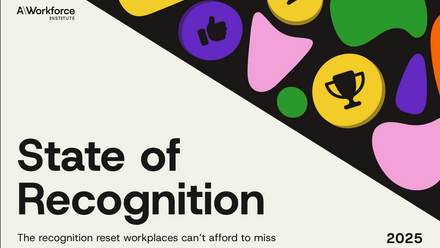How a positive workplace culture can enhance employees’ wellbeing

Undoubtedly, it’s crucial that businesses have the relevant infrastructure and resources in place to support their employees’ wellbeing, but the actual culture of the business is arguably more important.
Cultural elements such as the working environment, company ethos and relationships between colleagues can significantly influence employee wellbeing. This can then affect the frequency of absence, retention rates and the overall level of employee engagement.
But, what is a good workplace culture? How can it support employee wellbeing? By answering these questions, we uncover just how powerful a positive workplace culture can be.
The power of workplace culture
Studies already show that workplace culture has a tremendous impact on business performance. For instance, Deloitte found that 94 per cent of executives and 88 per cent of employees believe that a distinct corporate culture is important to business’ success. A stronger culture has also been found to lead companies to perform better in terms of operating margin and total shareholder return. Also, companies with strong cultures saw a fourfold increase in revenue growth according to Forbes.
Looking at workplace culture through the lens of employee wellbeing however, we start to see just how powerful it can be. Think about how much time we spend at work. A full-time employee in the UK will spend on average about 38 hours per week at work. When we accumulate these hours over weeks, months and years, it’s noticeable just how much of our lives we spend at work. With this in mind, our working environment is a central part of our lives and therefore has the scope to impact our wellbeing.
If your culture doesn’t accommodate the needs of your employees, they’re likely to be unhappy which can then have a negative impact on their wellbeing As a result, businesses have the power to support their employees’ wellbeing by improving their culture and creating an environment where employees will feel motivated, valued, supported, and most importantly, happy.
What is a positive workplace culture?
A positive workplace culture can be a number of different things to different businesses and people, but on the whole it should mean that there is an open, supportive and productive environment where employees are motivated, committed and work as a team.
To delve a little deeper on this, we reached out to HR professionals to understand what specific business characteristics constitute a positive workplace culture. From this, we established some key indicators:
- A relaxed workplace environment
- Open and honest communication between colleagues
- A flexible working culture
- Employees’ health and wellbeing is valued by the business
- Colleagues understanding and respecting each other
- There being a trusted environment between colleagues and managers
- Company values are established and embedded
- The company’s ethos and beliefs are known and aligned with colleagues
- Clear goals and rewards are known across the business
- Employees have a sense of pride in the organisation
- Employees are willing to go the extra mile
Interestingly, from these cultural features, respondents deemed “a flexible working culture” and “employees are willing to go the extra mile” as the most important to their businesses. But how can cultural attributes like these support the emotional, physical and financial wellbeing of a workforce?
The link between workplace culture and employee wellbeing
To understand how a positive culture can support employee wellbeing, we need to understand what employee wellbeing actually is. The Great Place to Work’s Wellbeing Model is helpful tool that illustrates the six different dimensions that constitute employee wellbeing:
- Work environment
- Mental and physical health
- Financial security
- Interpersonal relationships
- Work-life balance
- Fulfilment
Workplace culture has a direct influence on all of these elements because they can be matched to the characteristics established by our respondents. Let’s take some examples. If part of a business’ culture is to value employees’ health and wellbeing, then the mental and physical health of employees is supported, which in turn supports their wellbeing. At the same time, if there is a flexible working culture in place, the business supports the work-life balance of employees – another indication of employee wellbeing.
Our survey respondents further highlight this notion. When asked “How does a positive workplace culture support employee wellbeing?”, they said:
“People feel relaxed at work which helps with their mental health.”
“It changes the whole mind set of work and work/life balance.”
“By making it a nice place to work, staff feel valued.”
“When colleagues have wellbeing issues, it’s important they feel other colleagues and the business will support them in a positive way.”
Culture, therefore, should be a real point of consideration for businesses looking to enhance their employee wellbeing support. While a wellbeing strategy offering products and resources to employees is of course useful, perhaps businesses should look to ensure that their culture is positive and aligned to the needs of their employees first?
This article is provided by peoplevalue.
Supplied by REBA Associate Member, peoplevalue – The Employee Engagement Company
We are a leading provider of employee reward&recognition, benefits delivery&wellbeing solutions.







